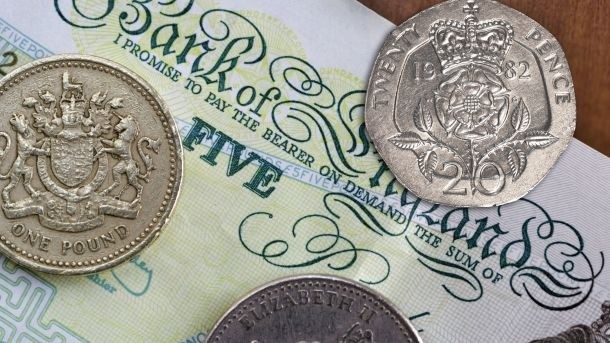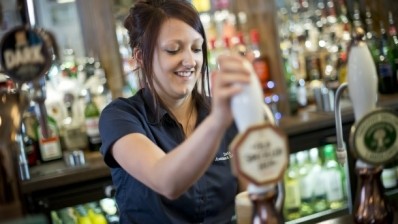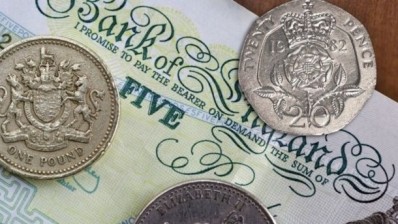Analysis
The National Living Wage: How is it going to impact pubs?

Paying the new enhanced rate of £7.20 per hour for workers aged 25 and over will present a huge challenge for many pubs, particularly those situated outside of major cities and in less affluent areas.
Faced with increased costs, particularly around staffing and property, many will see their operating margin eroded and will have to make tough business decisions.
According to the Association of Licensed Multiple Retailer’s (ALMR) annual benchmarking report, payroll costs account for over 26% of turnover and, with the roll-out of the NLW and planned uplifts to the National Minimum Wage in October, that figure looks set to increase with businesses really feeling the bite down the line – the NLW is set to top £9 per hour by 2020.
- Four ways to prepare for the new NLW
- The NLW 'will lead to more pub closures'
- Top tips on increasing pub profitability
Pay rise for pub staff
More than one million workers are set to directly benefit from the increase, with estimates that 50% of hourly paid staff in the pub sector will receive a pay rise as a result of the new policy.
ALMR chief executive Kate Nicholls says the ongoing increased costs could have damaging effects on the trade.
“There is a danger that careless and disproportionate increases to the rate of National Living Wage may discourage employers from hiring over-25s, undermining investment in jobs and place a brake on growth,” she says.
“The alternative for businesses is to either: increase prices significantly, which will undermine consumer confidence and derail economic recovery, or improve productivity, which in a labour intensive sector could mean cuts to staff and hours.”
Enforcing the NLW
The Government unveiled a new package of measures to help enforce the NLW:
• doubling the penalties for non-payment
• increasing the enforcement budget
• setting up a new team to take forward criminal prosecutions
• anyone found guilty considered for disqualification from being a company director for up to 15 years
Warnings
Her voice joins other senior figures in the trade that have warned about the threat of increased pub closures, rising prices and falling levels of customer service since the NLW was announced by the Government last summer.
Increasing prices sounds straightforward but is easy said than done. For pubs located in highly competitive and price sensitive areas this simply may not be an option. Operators with greater flexibility will still have to think carefully to avoid damaging their model.
For many licensees they will have no choice but to pass on costs to their customers. Steve Haslam, owner of multiple pubco TLC Inns, says he will be forced to up prices.
“The money can only come from the customer. The only other way is employing less staff, and that would be counter-productive. We are going to combat it with price increases; if customers ask the question, we will tell them we’ve had to raise prices because of the extra costs we face. If the Government doesn’t start to serve our interests soon there will be sizeable casualties,” he warns.
Watch a video from ACAS explaining the new National Living Wage
The cost
Workforce management consultants Catton Hospitality calculates the cost of the NLW to the hospitality industry as £372m. Using its labour scheduling system, S4Labour, the firm said the average cost per site will be £3,000 when the new rate comes into effect, along with planned increases for those aged under 25.
The firm describes the figure as a “conservative estimate”, which doesn’t include maintaining any wage differentials currently in place, nor does it consider those operators that have committed to offering the NLW to their entire workforce.
Catton says while it’s inevitable some operators will pass on costs to customers to maintain margins, others will scrutinise their operations.
Chief executive Alastair Scott adds: “I have spoken to over a thousand operators who know that their best trained staff can deliver better service, drive spend, and ultimately improve the business. As the cost of staff rises and it is increasingly hard to find good quality people, the drive for all industries should be to improve productivity and efficiency and try to pay as much as they can afford to attract and retain the best staff.”
Investment
In a report at the end of last year, Neil Morgan, director and head of pubs at Christie + Co, said that past experience shows that, when margins are squeezed, investment usually takes a hit.
“As history has shown, where margins are tight, less capital is allocated to repairs and improvements, which in turn impacts stock quality and the ability to push prices up. Suppliers will be facing a similar challenge to the pubs sector, with some passing the increased cost on to consumers and others taking on the burden. Independent operators are more likely to switch suppliers in order to find cost savings at any level,” he said.
But is it all doom and gloom? At face level, the enhanced pay rate should result in lower staff turnover and increased motivation for workers at the lower end of the pay scale, meaning service and customer experience should, in turn, improve.
Opportunity
Experts suggest that businesses should be using the NLW as an opportunity to introduce wider workforce interventions and technology to improve productivity, rather than defaulting to passing the costs on to consumers. How pubs react to this change will set them apart for the future and be best positioned to attract and retain talent.
What should I pay staff?
"When I ran pubs I never paid the minimum wage – always at least £1 an hour over. I wasn’t prepared to put the success or failure of my business into the hands of people paid the lowest wage"
Ali Carter, ex-BII Licensee of the Year
“Organisations must have a plan to deal with these costs, that isn’t simply passing them on to consumers or reducing headcount,” consultancy PWC said in a report last year.
David Jones, chair of the Association of Licensed Trade Accountants, whose members provides financial reporting services to pubs across the country, urged licensees to “move with the times”.
He says: “It will be a lot of small measures added together that make a difference. There has to be a constant thought on how to save money. Payroll is the biggest cost so demands the most time – it’s about spending time working ‘on the business’ rather than just in it.”
Trevor Brown is managing director of consultancy SureStock and the BII’s ‘Business Doctor’ says rather than see the NLW as detrimental to profitability, licensees should see it as an opportunity.
“Our industry has survived many challenges and the good operators will survive this one. The NLW gives pubs a golden opportunity to invest in the future of the industry by taking on more young apprentices and maybe helping to address the chronic shortage of chefs in particular,” he says.
“The burden of NLW is ameliorated by recent and future planned reductions in corporation tax so pubs really need to be trading in Limited Company rather than sole trader status for this to be advantageous. Smaller businesses are further cushioned by the increased employment allowance meaning that any business can employ four people at the NLW rate and still pay no National Insurance whatsoever.”
Solutions
Other practical solutions might include the introduction for permanent staff of annualised hours contracts to improve efficiency rather than the more traditional form of hourly/weekly/monthly deals. Developing your team to be multi-functional so that if, for example, front of house is quiet, staff can be utilised in food preparation or other tasks is also worthy of consideration, he adds.
Ali Carter is a former BII Licensee of the Year and trade consultant. She says good staff are worth paying a premium for. “When I ran pubs I never paid the minimum wage – always at least £1 an hour over. The reason being I could pick the best of the labour market – I wasn’t prepared to put the success or failure of my business into the hands of people paid the lowest wage,” she explains.
London-based multiple operator Draft House started paying its staff the National Living Wage several weeks early. The group has also launched its new career progression plan, which aims to show a clear and swift route to senior roles.
Founder Charlie McVeigh says: “The launch of our career path and the early adoption of the National Living Wage shows, I hope, our commitment to our amazing team. Our goal is to make Draft House the most exciting place to work in the pub business. Given the quality of the people working for us now, the available new job opportunities and our ability to quickly progress ambitious beer-types through the ranks we think we are already well on our way to achieving this.”
Pressures
For many pubs there will undoubtedly be some tough decisions concerning staffing and jobs ahead. Trade bodies continue to emphasise that increased costs make it all the more important the Government helps reduce the burden in other areas, particularly around business rates and red tape. The Government helped a little in those areas with its recent Budget, but pressures remain as this year is just the beginning of annual compulsory wage hikes.
Individual pubs will find their own paths to 2020 and beyond but the new NLW is yet another hurdle for a still recovering sector to jump over.
As always, well-prepared licensees will work hard to absorb the costs and continue to provide better experiences for customers and better jobs for those working in their pubs.
For more on the National Living Wage, visit the official government website.








